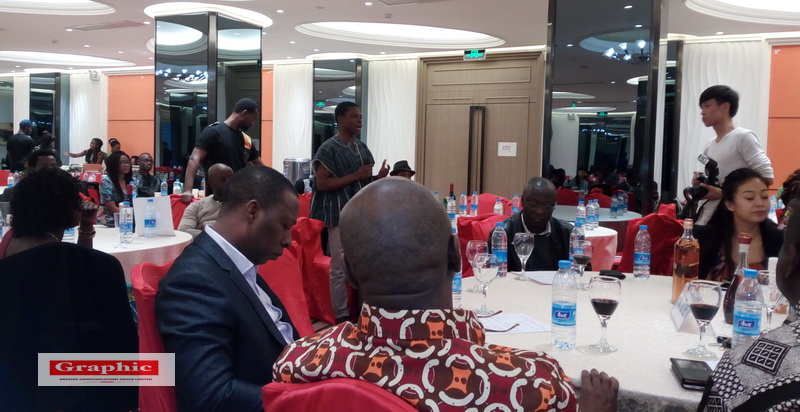Many businesses are turning away from Ghana due to the high facilitation fees charged by the government for the establishment of businesses in the country, the Ghanaian community in China has asserted.
It has therefore, urged the government to reduce the fees to promote the ease of doing business in the country.
Making their concerns known at an Open Forum and Town Hall Meeting in Beijing last Saturday, Ghanaian students and businessmen living in China said they and other Chinese businesses had been driven away from establishing businesses in Ghana due to the high cost incurred in the payment of facilitation fees.
“There are companies in Ghana who want to invest but because of facilitation fees that is being demanded, these people have turned to go and do something else,” a student at the Peking University, Mr. Charles Okrah who raised the issue, said.
“If somebody wants to set up to help you then you are demanding 20 per cent, 25 per cent, 30 per cent, how can the person manage his business? These things should stop,” he urged, attracting applause from the gathering which concurred his statement.
Mr Okrah said that Ghana with about 80 per cent of arable land was currently importing tomatoes from Burkina Faso that had only 45 per cent of arable land because of impediments put in the way of Ghanaians who wanted to invest in the country, urging that something needed to be done to stop such happenings.
Also expressing worry that the spirit of patriotism was dead, he urged his colleague students to find something to do if they went back home to help the country saying, “We are the only people who can develop our country.”

Local content
Another student, Mr. Emmanuel Commey suggested that Chinese businesses which wanted to set up in Ghana should be made to give a quota to Ghanaians who had studied in China to have internship slots in their companies as a prerequisite.
However, the Officer in-charge of Trade at the Embassy, Mr. Kwadwo Atuahene, explained that it was not in the power of the embassy to insist that the Chinese companies took on Ghanaian students because they had their own policies and such a policy could make Ghana unattractive for Chinese businesses.
Rather, he asked that many viable Chinese businesses must be encouraged to invest in Ghana where they will be guided by the investment laws which state the number of foreign nationals who can work in a company, while others would have to be sourced locally.
“The best thing for you here is that the Chinese man will be comfortable to work with someone who has trained in China, has imbibed the Chinese way of doing things and therefore they will be comfortable working with that person,” he said.
Business forum
A businessman who only gave his name as Mr. Sarfo recommended to the Embassy to hold periodic fora for Ghanaian businessmen in China to share ideas that would help Ghana develop, such as the ‘one district, one factory’ policy being championed by the government.
“For instance the ‘dumsor’ issue in Ghana can become a thing of the past. There are so many companies in China which can help solve the problem,” he stated.
He said it was because the Chinese people who went to study in other countries brought new ideas to the leaders for implementation that the Chinese economy was booming and said Ghana could learn from that.
In his response however, Mr. Atuahene, said although his office was new, his attempts to get Ghanaian businessmen in China to work with had not been successful.
“So your being here is very opportune. I will liaise with you and I promise you that our business forum will start from Guangzhou,” he pledged.
A masters student, Samuel Ofosu, said while Ghanaian students found it very difficult to get information about Ghana to write their thesis because most government websites were not updated, papers produced on Ghana remained ‘in the clouds’.
He therefore, suggested the creation of a channel through which such papers could be accessed for the development of Ghana.
Writer’s email: edmund.asante@graphic.com.gh
